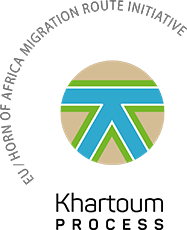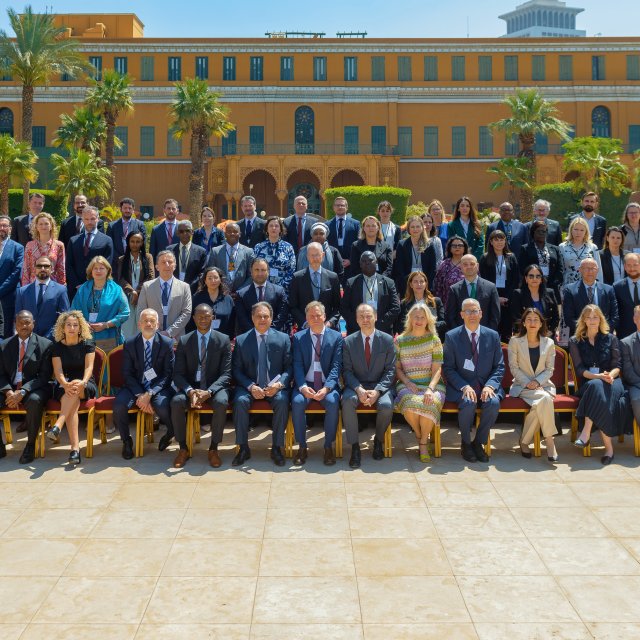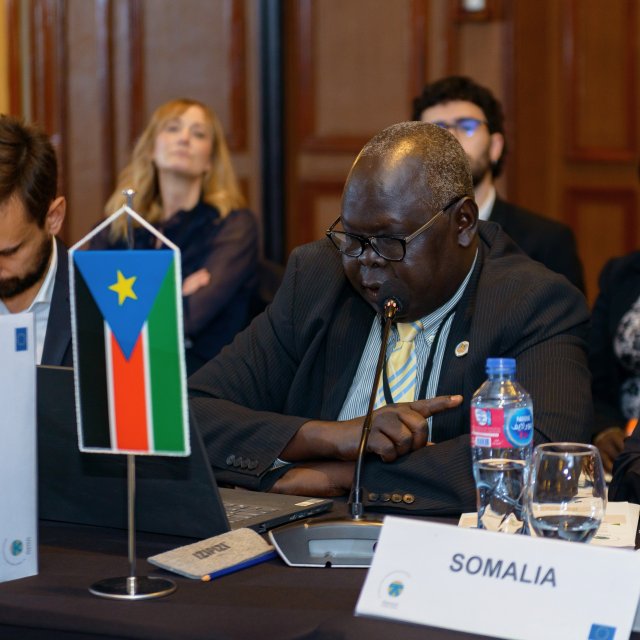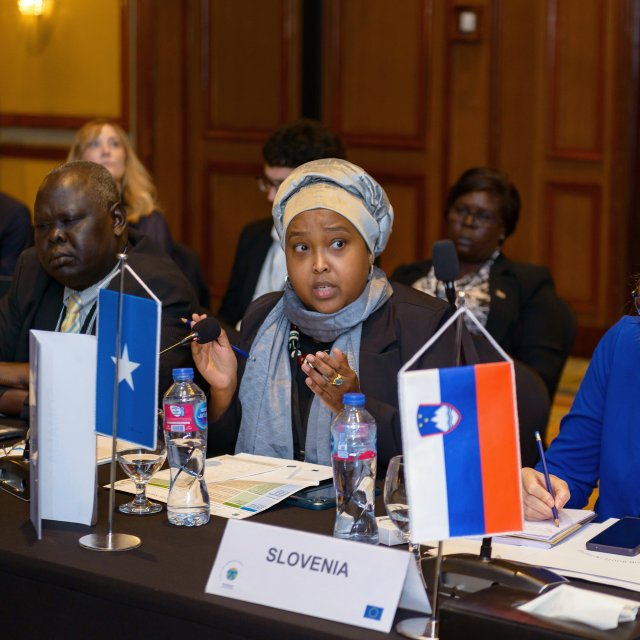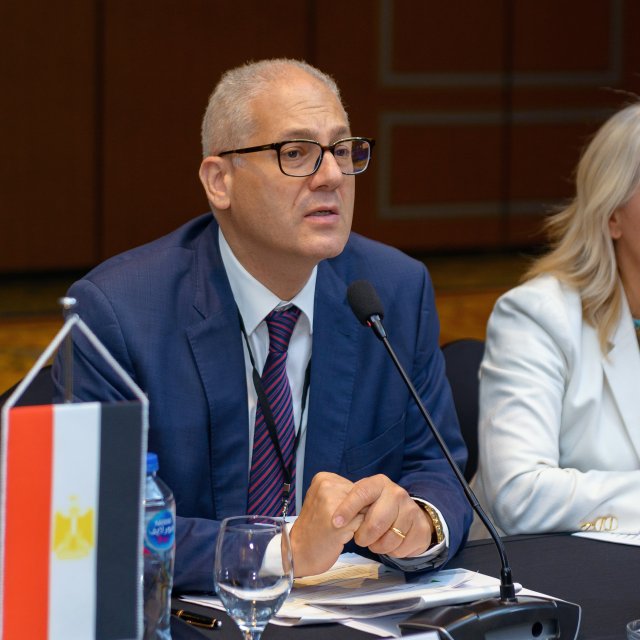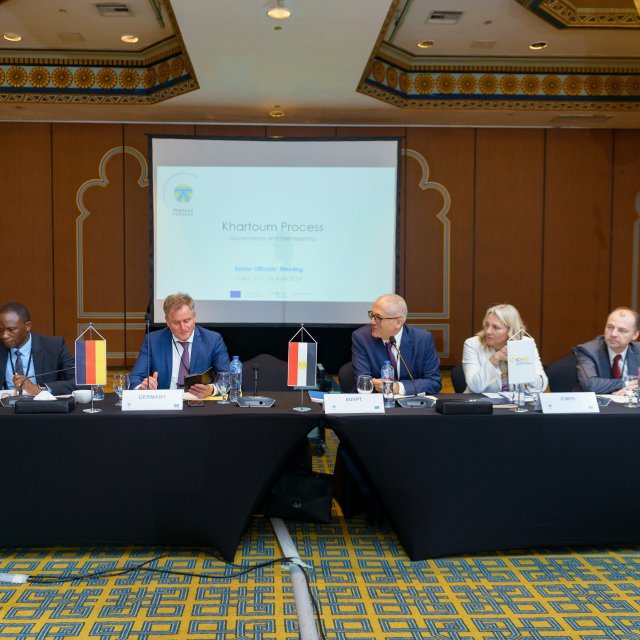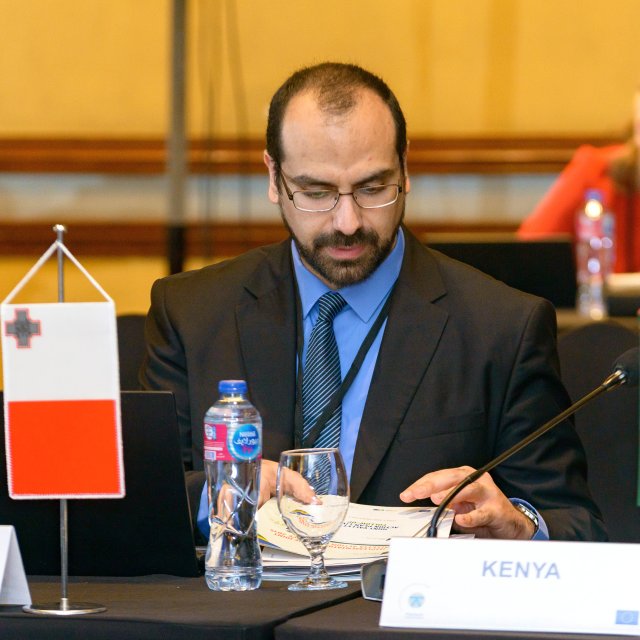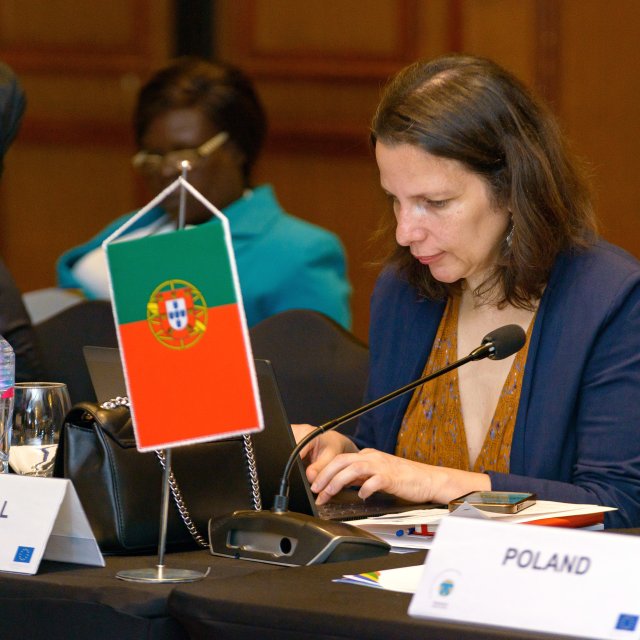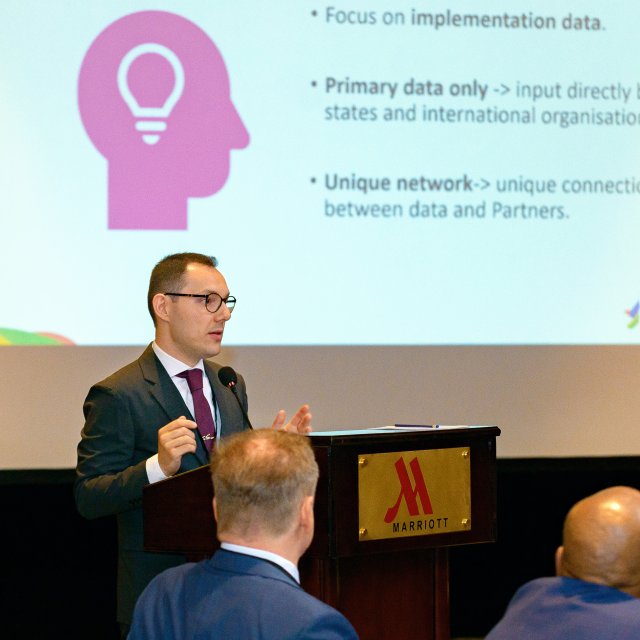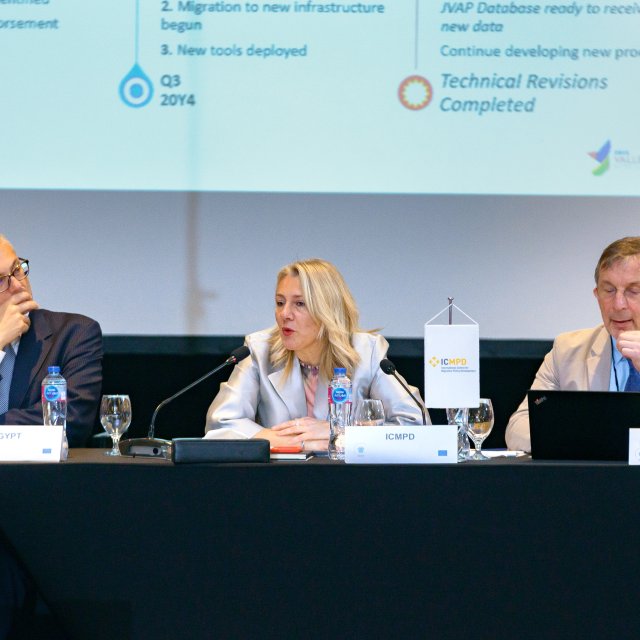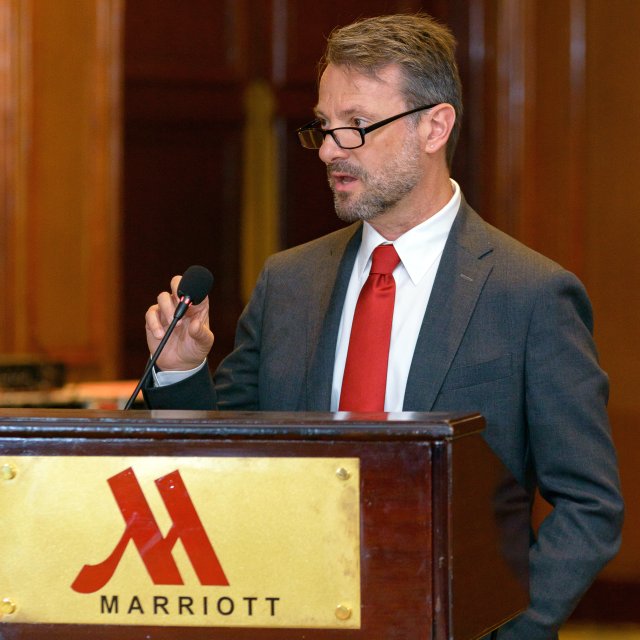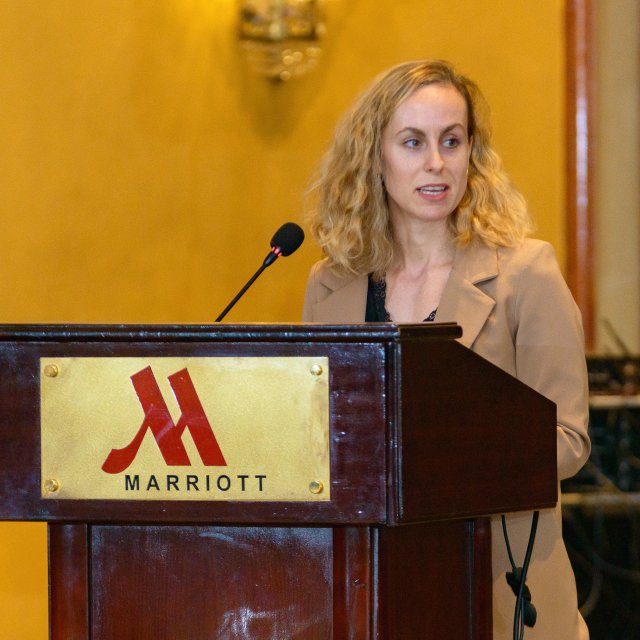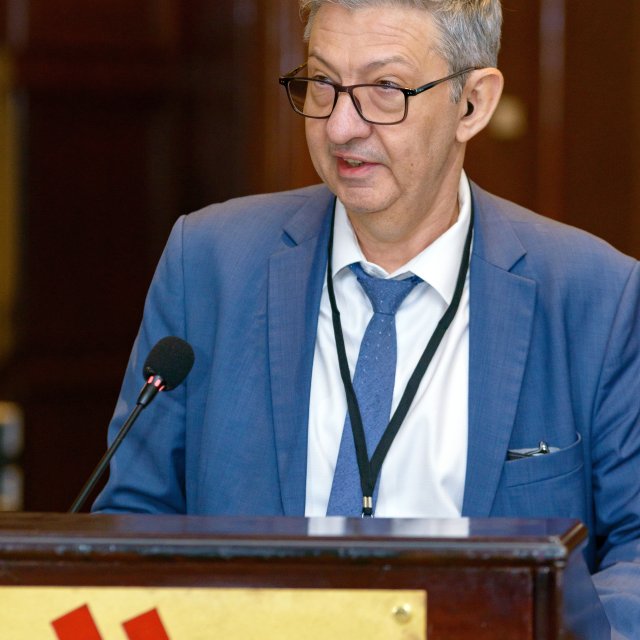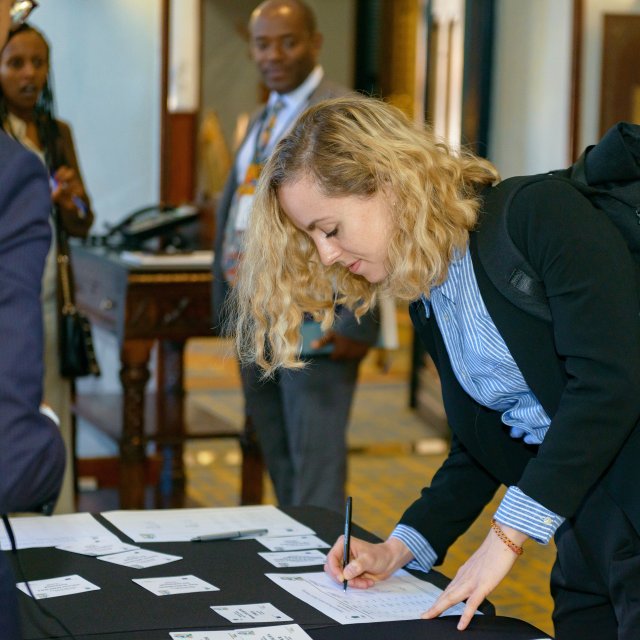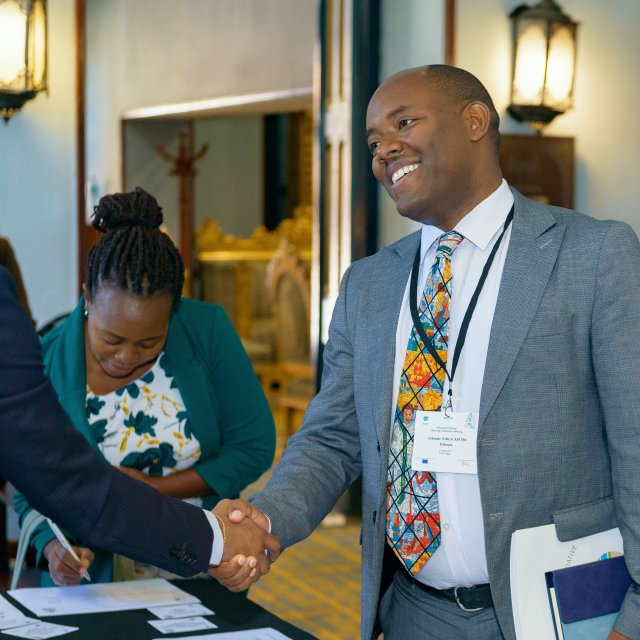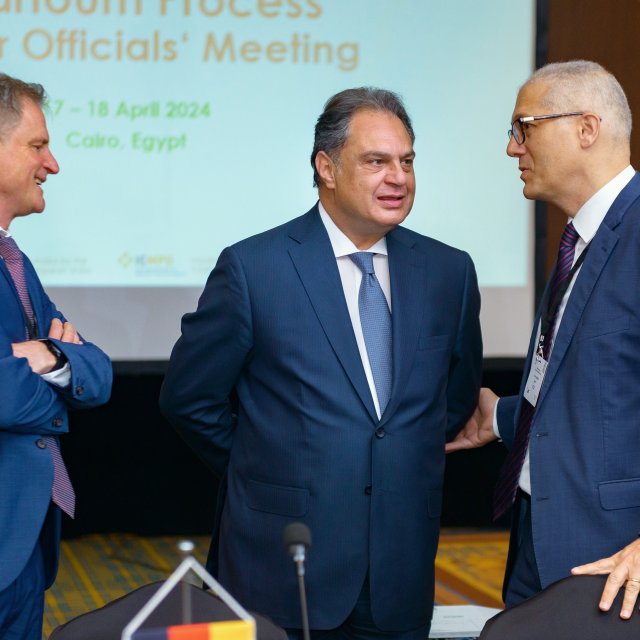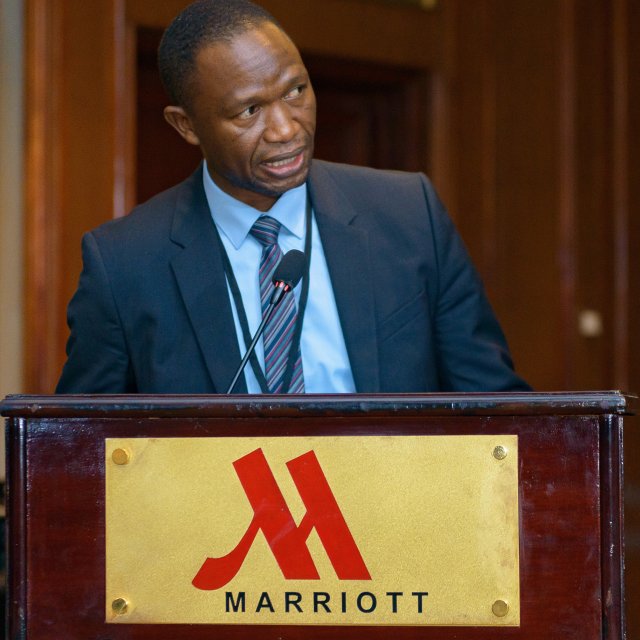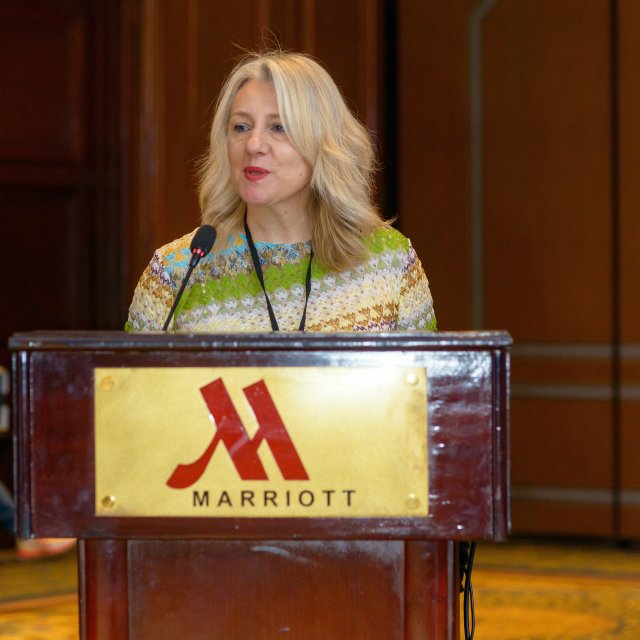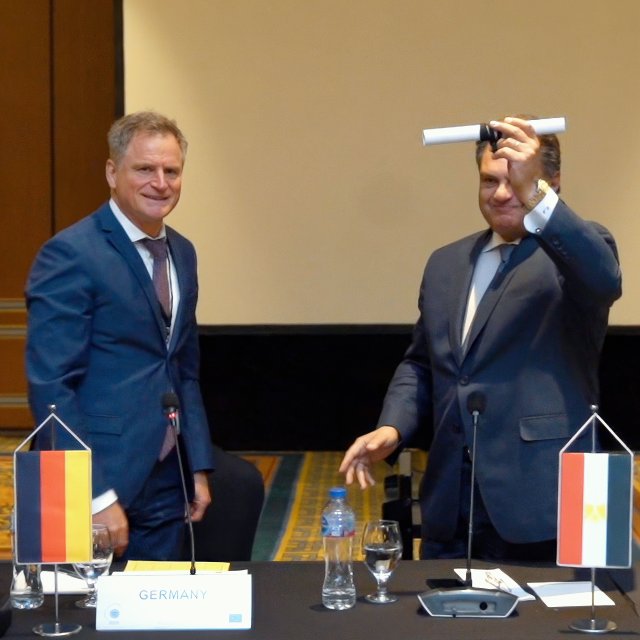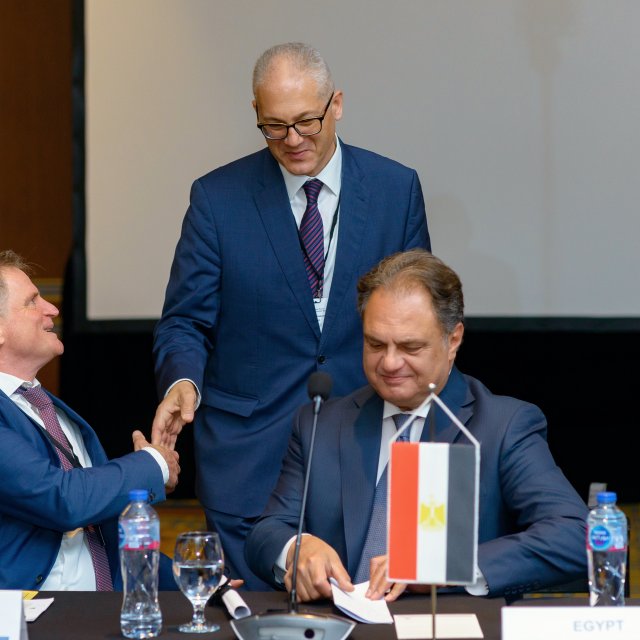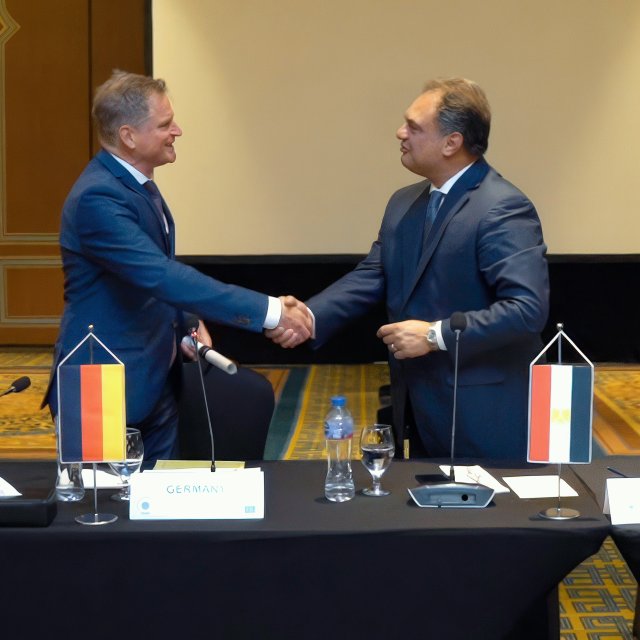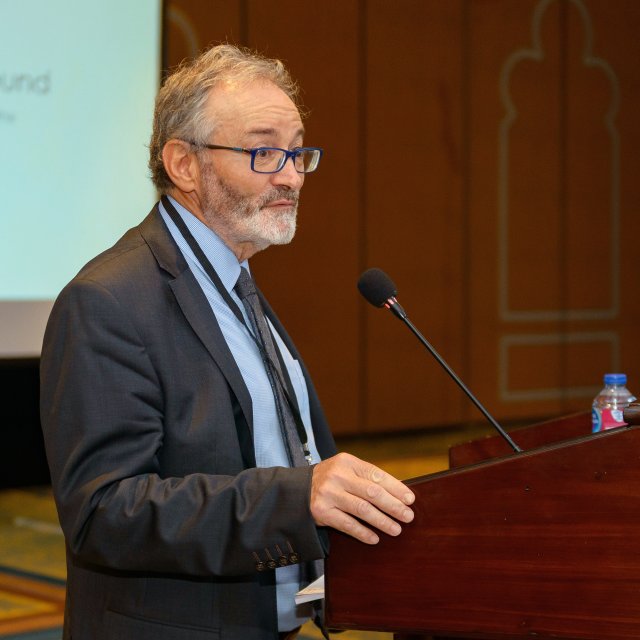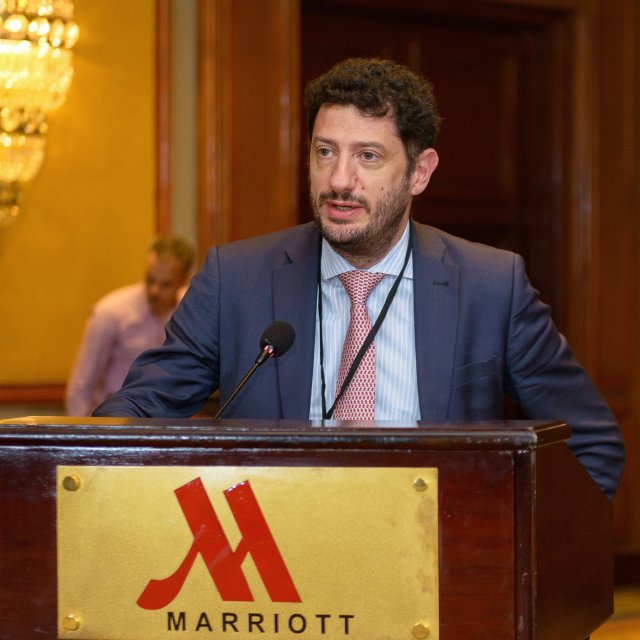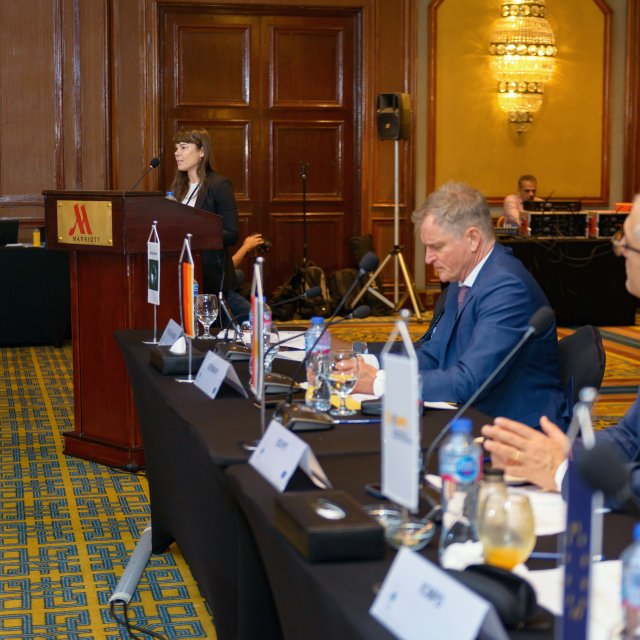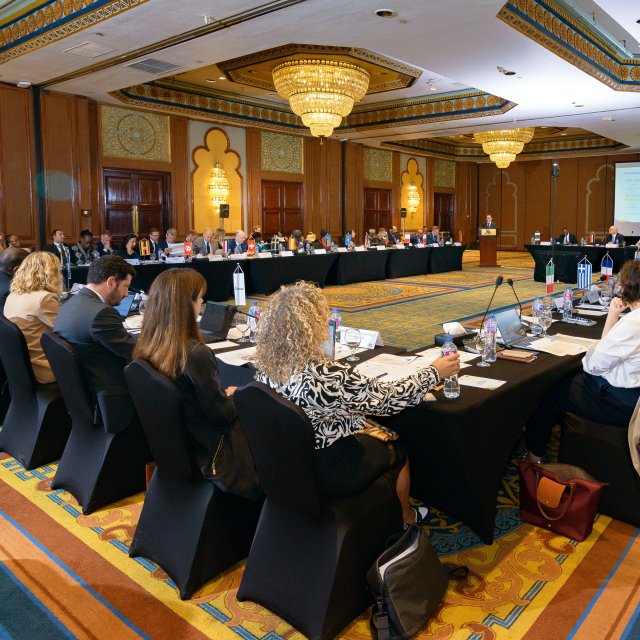In Cairo, Egypt, from 17 – 18 April 2024, the Khartoum Process partners convened for their 10th Senior Officials’ Meeting (SOM), following a Steering Committee (SC) meeting on 16 April. The event drew 76 participants representing 26 African and European countries, along with 12 partner organisations. Key figures such as Assistant Minister Ehab Badawy of Egypt's Ministry of Foreign Affairs, outgoing chair Mr. Manfred Schüler of Germany's Federal Foreign Office, and representatives from the African Union Commission, European Union and ICMPD were present.
Reflecting on the German Chairmanship, the Khartoum Process made strides in addressing migration issues within the framework of the Joint Valletta Action Plan. Activities organised during this tenure tackled various challenges related to migration comprehensively, including climate-induced mobility, sustainable solutions for internally displaced persons, the benefits of applying “whole-of-government” approaches in the context of return and reintegration, and combating trafficking in persons. The Process also provided a platform for discussions on the situation in Sudan and its implications for migration and displacement in the region.
Chairmanship handover to Egypt: a strategy enhancing comprehensive approaches to migration
The focus of the SOM was the transition of the chairmanship from Germany to Egypt and the future direction of the dialogue. Egypt's upcoming tenure will prioritise the continuation of existing efforts in various thematic areas while advocating for a comprehensive approach to migration. These themes include establishing legal migration pathways, integrating humanitarian, development, and peace initiatives into migration debates, addressing climate change's impact on displacement, and combating human trafficking and migrant smuggling. Additionally, member states have highlighted other areas such as sustainable reintegration, diaspora engagement, and migration and development, aligning with the Joint Valletta Action Plan.
Egypt's chairmanship will also mark the 10th anniversary of the Khartoum Process throughout the activities of the year. Efforts will be made to enhance cooperation with the Rabat Process through a joint event aimed at fostering dialogue and shared strategies.
Uganda joins the Khartoum Process Steering Committee
During the SOM, Uganda was endorsed by the members of the Khartoum Process as the sixth African member of the Steering Committee. The Steering Committee is the governing body of the Khartoum Process, which strategically steers the work of the dialogue. Uganda is joining the African group of Steering Committee members, alongside Egypt, Eritrea, Ethiopia, South Sudan and Somalia. Somalia was previously elected to temporarily fill the vacant seat left by Sudan’s ongoing inability to fulfil their role.
Assessing Mixed Migration Flows and Enhancing Cooperation
The SOM offered an opportunity to assess the factors influencing mixed migration flows in the Khartoum Process region. The EU-Horn of Africa route faces a complex blend of conflict-induced displacement, environmental pressures, economic migration, and humanitarian crises. Interventions from partner organisations and initiatives like UNHCR, UNODC, Frontex, GIZ (BMM), and the ROCK highlighted the multifaceted challenges faced by populations in the region.
As part of the EU-funded programme providing support to the Khartoum Process, a new grants component was introduced to involve civil society and diaspora organisations as well as local authorities in migration-related initiatives, aligned with the Africa-EU Migration and Mobility Dialogue (MMD). Updates on the latest JVAP data collection cycle were also presented to the participants followed by discussions on the preferred way forward for the database.








